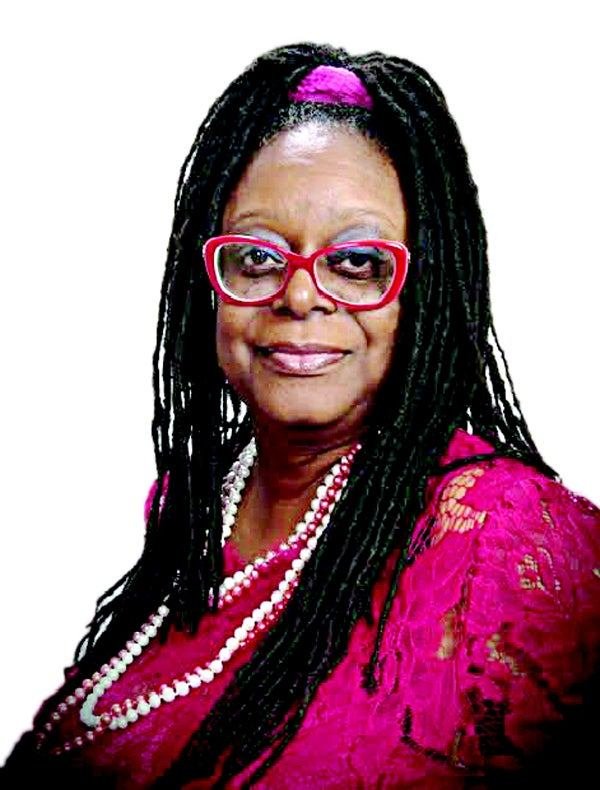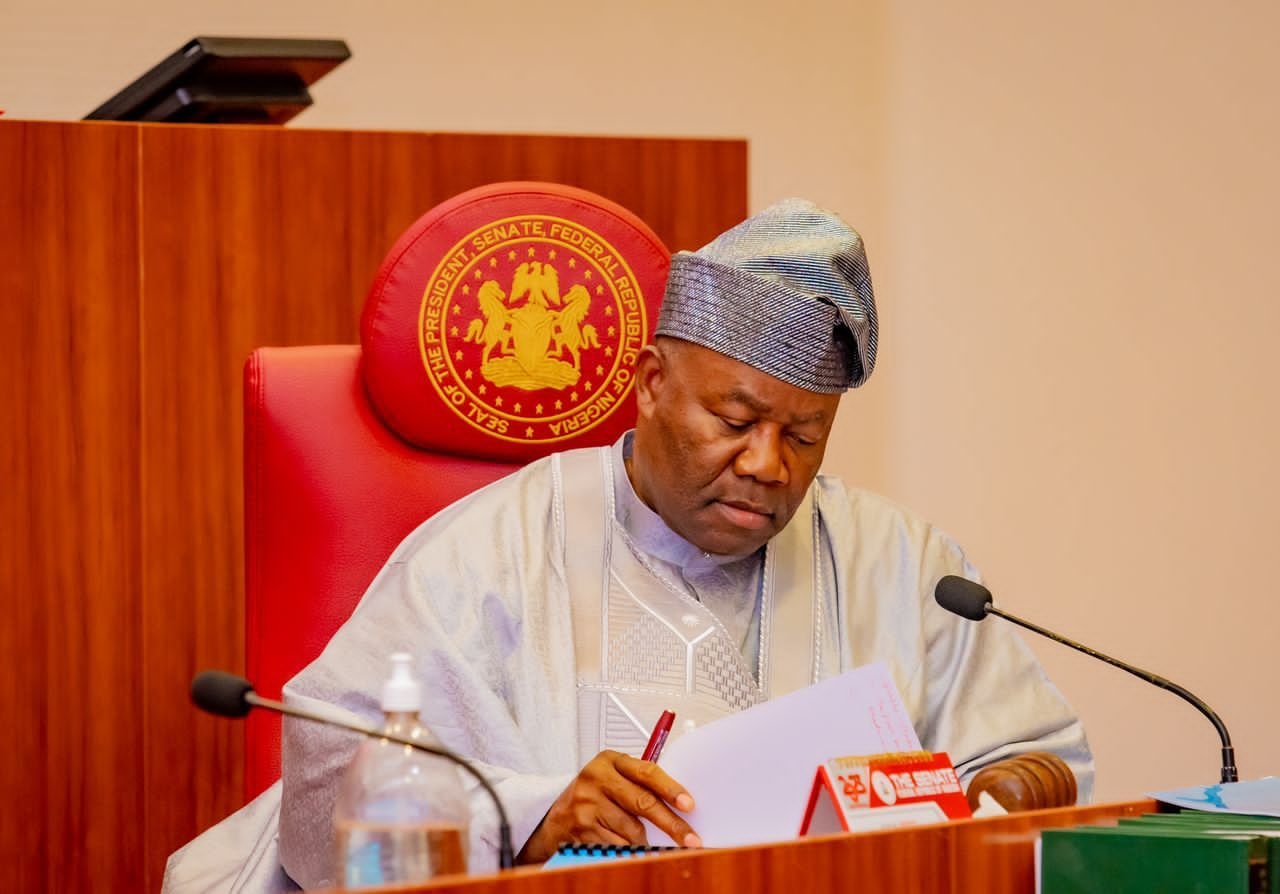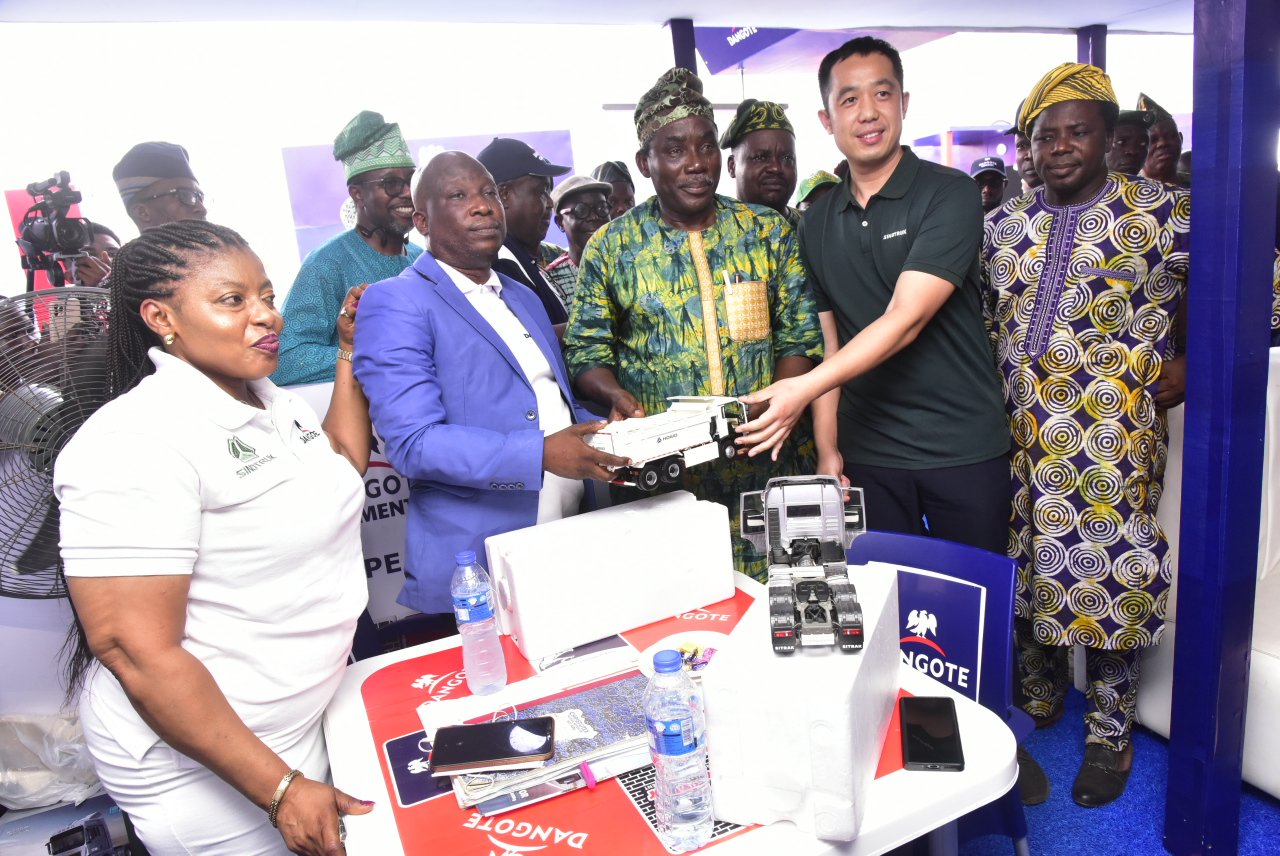How the year 2020 impacted Nigeria and what 2021 holds for the nation’s economy
By Mrs. Toki Mabogunje
The year 2020 was characterized by economic disruptions, shifting consumer preferences, business model re-evaluations, changing operating models, technological innovations, institutional weaknesses, structural constraints, heightened security challenges, among others. All of these were amidst a ravaging COVID-19 19 pandemic.
Several lessons were learnt from these experiences regarding how businesses need to strategically reposition themselves in the context of the volatilities of an increasingly complex operating environment.
I would like to appreciate the gentlemen of the press for the sustained interest in the Chamber’s activities and more importantly for the robust coverage given to our programmes. Our advocacy activities would not have been very impactful without your co-operation. As an institution that represents business interests, we look forward to deepening this partnership in our efforts at building a globally competitive Nigerian economy.
Distinguished Ladies & Gentlemen, following the new strain of coronavirus pandemic, I urge all citizens to adhere strictly to safety protocols as prescribed by The Nigeria Centre for Disease Control (NCDC). With strong co-operation and commitment, I am optimistic that we can overcome this scourge.
I have structured my address into eight thematic areas namely:
v A Brief Assessment of the Nigerian Economic & Business Environment in 2020.
v Economic Recovery Prospects in the Year 2021.
v Policies to be sustained in the Year 2021.
v 2021 Budget.
v African Continental Free Trade Area.
v Policy Priorities of Government in the Year 2021.
v Strategic Options for Investors and Entrepreneurs.
v Expectations from the new US Administration.
BRIEF REVIEW OF the YEAR 2020
The year 2020 was historic and challenging for the global and domestic economy. Countries across the globe including Nigeria, grappled with the health and economic impact of the coronavirus pandemic. For us in Nigeria, the year was characterized by imposition of lockdowns, curfews and other containment measures, volatility in commodity (oil) prices, subdued external demand, social tensions, EndSARS protest, heightened insecurity, forex liquidity concerns, Ports crisis, subdued business activities, contracting disposable incomes, business disruptions, and investment uncertainties.
The Federal Government, monetary authorities, and Coalition of Private Sector Stakeholders took steps to mitigate the adverse impact of the pandemic on businesses and households. The Nigerian Economic Sustainability Committee under the chairmanship of His Excellency, Professor Yemi Osinbajo, developed the Economic Sustainability Plan to provide a reprieve to the Nigerian business community. The Central Bank of Nigeria complemented this gesture through its accommodative policy disposition, reflected in interest rate reduction and sustained developmental finance interventions.
The government took some bold steps around some important policy reforms. Notable among these were the partial removal of subsidies on Premium Motor Spirit (PMS) popularly called petrol; introduction of service reflective tariff in the power sector; investments in renewable energy sources; enactment of CAMA 2020 and transmission of the Petroleum Industry Bill (PIB) to the National Assembly.
The year was a major test of our resilience and challenge to our entrepreneurial and innovative capacities. Several businesses across various sectors were forced to readjust their operating models to fit current realities. Technology adoption in business operations gained strong traction as businesses prioritize innovative revenue optimisation and cost reduction plans. For economic and business sustainability in 2021, the following advice will be useful.
v Businesses must maintain a flexible operational structure by embracing technology to adapt to changing market dynamics. This will facilitate a smooth transition when implementing remote working structures.
v The need for business owners to effectively communicate continuity measures with key stakeholders. This will help to responsibly manage diverse expectations from employees, suppliers, customers, partners, etc.
v Corporate entities must constantly review their operating models to identify activities that can be discontinued during this covid-19 period in order to reduce operating costs and support margin.
v These disruptions should propel businesses to look beyond their traditional operations and identify new business ideas, that can complement their existing operations.
v The need for policymakers to expeditiously develop a framework that would ensure the country has a well-diversified revenue base given the volatilities of crude oil price. This is imperative for macroeconomic stability.
v Deepening efforts to improve and sustain investment in human capital development, particularly education and health infrastructure, is crucial.
v The imperative of self-reliance with respect to food security, drug security, and energy security.
v The importance of the creation of an enabling environment that promotes business continuity and sustainability, and boosts investors’ confidence.
ECONOMIC RECOVERY IN the YEAR 2021
The Lagos Chamber notes the moderation in the magnitude of contraction in the third quarter of the year 2020, with the real GDP growth rate slowing from 6.10 percent in the second quarter to 3.62 percent in the third quarter. We expect even less contraction in the fourth quarter. The trajectory is thus positive. The Nigerian economy entered recession in the third quarter of 2020 after two consecutive quarterly contractions propelled by pandemic-related disruptions. This was the second recession in five years, and we expect the recession to be short-lived if the covid-19 pandemic is well-managed at global, regional, and country levels.
In the absence of major shocks, the Lagos Chamber expects the economy to return to a positive growth path in the second quarter of the year 2021 albeit the pace of recovery is expected to be subdued within the region of one percent. Projections by World Bank, IIF, and IMF put Nigeria’s annual average growth for the year 2021 at 1.1%, 1.2%, and 1.5% respectively. The expectation of slow growth momentum reflects the lingering effects of the pandemic on the Nigerian economy and prospects of stricter containment measures considering the new strain of covid-19 pandemic.
The country’s recovery prospects in the year 2021 will be dependent on four key factors including (a) effective management of the pandemic locally and globally; (b) widespread vaccine rollout; (c) direction of the global oil market and (d) quality of fiscal, monetary, trade and regulatory policies.
Accelerating the pace of economic recovery requires fiscal and monetary authorities to be well coordinated to promote growth-enhancing and confidence-building policies that would encourage more private capital inflows into the economy. An investment-led growth strategy is critical for inclusive and sustainable economic growth. Strong commitment to key reforms will not only boost output recovery but will also put the nation on a path of macroeconomic stability. We accordingly recommend as follows:
v Review of the foreign exchange management framework to expand the scope of the market mechanism in the determination of the exchange rate. The unification of the exchange rates should be prioritized. This is imperative for expediting recovery and bolstering investor confidence.
v Mobilizing efforts in making the business environment more conducive for MSMEs and large corporates by addressing structural bottlenecks and regulatory constraints contributing to the high cost of doing business.
v Clarity in government’s policy direction by ensuring consistency in economic policies. Policy consistency is imperative for long-term investment planning and business projections.
v Prioritizing public spending to support critical capital development expenditures in road, railways, power, health, education, etc.
POLICIES TO BE SUSTAINED IN the YEAR 2021
Deregulation of The Downstream Oil Industry: We acknowledge the government’s resolve towards deregulating the downstream segment of the oil industry. We also note the push back to the comprehensiveness of the reform.
We would like these measures to be sustained in the year 2021. However, it must be noted that deregulation will not yield the desired benefits for industry players and Nigerians given the monopolistic structure of the Nigerian downstream oil industry characterized by huge dependence on the NNPC for product supply.
We also urge the Federal Government and the Nigerian National Petroleum Corporation to create an enabling regulatory environment that encourages domestic and foreign investment in refineries to boost domestic refining capacity.
Passage of Petroleum Industry Bill (PIB):
The PIB seeks to establish a framework for the creation of a sustainable. commercially oriented and profit-driven petroleum sector to ensure investment growth in the sector. The bill presents an opportunity for the needed reform of the Nigerian oil and gas industry. It would create a platform not only for preserving existing government revenue but also to incentivize new projects that will increase production and revenue for government and stakeholders, thereby guaranteeing the long-term sustainability of the industry.
The Lagos Chamber urges the National Assembly to put in place a law that will promote more effective and efficient governance, administration, host community development, and fiscal framework for the petroleum industry. A competitive Bill would help preserve the integrity of the existing projects, whilst also encouraging future growth of oil production and make Nigeria an investment destination of choice. We recommend that the input of the private sector stakeholders should be given due consideration by the National Assembly.
The National Assembly has expressed commitment to pass the PIB before the end of the first quarter of 2021. We believe the passage would also encourage investments in private sector refineries and position Nigeria as a major refining hub in West and Central Africa.
Cost-Reflective Tariff Regime
The Lagos Chamber endorses the cost-reflective tariff regime in the power sector. We note the pushback from the labour unions on the policy. However, for the sector to attract significant investments for improved power generation, transmission and distribution, the cost-reflective tariff model is inevitable. If the economics of the investment is not right, investors will not inject capital into the sector. However, it is imperative for power distribution companies (DISCOS) to intensify efforts in metering electricity consumers to avoid occurrences of consumer exploitation through estimated billing. There should also be strong accountability and consumer protection framework to improve consumer confidence.
Low Interest Rate Regime
The Lagos Chamber lauds the low-interest rate regime that prevailed for the most part of 2020 and would like to see it sustained in the year 2021. The low yield environment has been beneficial to investors in terms of mobilizing cheap funds for investment in the real economy. The low yield environment also contributed significantly to the impressive performance of the Nigerian Stock Market in the previous year. A low-interest regime will encourage blue-chip corporates to undertake further investments, thereby stimulating aggregate demand and economic growth. We expect the CBN to maintain its pro-growth policy stance by keeping interest rates low, to stimulate redirection of funds from the money market to the real economy. The focus of improving credit access by small businesses must be sustained.
2021 BUDGET
We commend the Federal Government for maintaining the January-December Budget Cycle for the second consecutive year amid covid-19 disruptions. The timely signing of the 2021 Appropriation Bill and 2020 Finance Bill into law is a welcome development.
We welcome the 2020 Finance Act as the legislation is expected to improve the country’s tax administration framework. The Act adopts appropriate counter-cyclical fiscal policies to respond to the economic and revenue challenges faced by the Nigerian economy. However, the Act needs to be regularly reviewed to reflect changing dynamics in the economy.
The Lagos Chamber notes the aggregate expenditure and revenue framework of the 2021 budget. The budget has a total spending plan of N13.59 trillion with a revenue projection of N7.99 trillion. Aggregate expenditure comprised N5.99 trillion earmarked for recurrent non-debt expenditure; N4.37 trillion for capital expenditure; N3.32 trillion for debt servicing and N496.5 billion for statutory transfer, with non-oil and oil revenue sources contributing 70 percent and 30 percent respectively to projected revenue.
We appreciate the Federal Government’s resolve in reducing dependence on oil proceeds for budget funding by designing policies and strategies to improve non-oil revenue. Notable in this regard is the passage of the 2020 Finance Act.
We note the assumptions guiding the budget: including GDP growth rate of 3 percent; inflation rate of 11.95 percent; N379/$ FX benchmark; $40 per barrel oil price target and oil production of 1.86 million barrels/day. While we consider the oil price and production assumption as realistic; the inflation, growth, and FX rate assumptions do not appear to reflect the current realities.
Some key issues around the budget are as follows:
v The fiscal deficit in the 2021 budget amounts to N5.6 trillion, equivalent to 3.39 percent of GDP, and it is expected that the actual deficit will surpass this projected amount given the country’s persistent revenue challenge. We note the Federal Government’s plan to finance the deficit largely through new borrowings ofN4.68 trillion from domestic and external sources. We are bothered about the mounting public debt and the increasing pressure of debt servicing on the nation’s finances. It is a threat to our medium-term fiscal stability. Resort to borrowing from the Central Bank of Nigeria’s financing through ways and means to bridge budget shortfalls poses a major risk to macroeconomic stability. Where possible, the option of equity financing of some capital projects should be explored.
v Persistent revenue challenge is a risk to effective budget performance. The Federal Government intends to source 70 percent of projected revenue from the non-oil sector basically through taxation. This target seems optimistic given that corporate entities are still faced with lingering effects of covid-19 disruptions. This goal cannot be accomplished without a supportive macroeconomic and policy environment that encourages the ease of doing business. An enabling environment that supports business growth and expansion provides the impetus to improve revenue mobilization in the non-oil sector. The creation of an enabling business environment must be at the forefront of the government’s revenue mobilization strategies in the year 2021.
v The Federal Government should slowdown in mounting pressure on revenue-generating agencies in achieving revenue agents. Emphasis on revenue generation propels such agencies to focus solely on revenue to the detriment of their core mandate of facilitating investment growth and this has gross implications for the ease of doing business in the country.
v Budget monitoring mechanism needs to be strengthened by possibly constituting a private-public stakeholder’s committee to oversee the implementation process. This is critical to improving budget outcomes.
AFRICAN CONTINENTAL FREE TRADE AREA (AFCFTA)
The Lagos Chamber considers the operationalization of AfCFTA as a step in the right direction in deepening economic integration in Africa. The agreement requires participating countries to remove tariffs from 90% of goods, thereby allowing free access to commodities, goods, and services across the continent. The agreement provides the opportunity for manufacturers, traders, service providers, SMEs, etc to tap into the African market with a combined Gross Domestic Product and population of around $3.4 trillion and 1.3 billion persons, respectively.
For Nigeria, the trade agreement serves as an avenue for local industries to penetrate new markets and establish strong cross-border supply chains with other African countries. We believe the benefits and costs of the agreement will not be evenly distributed among participating countries and only countries with an open, friendly, and enabling operating environment stand to benefit materially from the agreement. This underscores the need for policymakers to expeditiously create an enabling environment that would enhance the country’s economic competitiveness in the AfCFTA framework.
While the take-off of AfCFTA should be lauded, much work remains undone as critical parts of the agreement are yet to be finalized. Several Key issues including schedules of tariff concessions, schedules of service commitment, rules of origin, investment, competition policy, and intellectual property rights have not been concluded.
There is still a lack of clarity on the type of value addition that must occur within an AfCFTA State party for a product to benefit from tariff reduction. We call on the AfCFTA Secretariat and the African Union to expeditiously finalize pending negotiations for effective AfCFTA implementation. There is still a great deal of sensitization and enlightenment that need to be done on the implementation modalities.
KEY PRORITIES FOR GOVERNMENT IN YEAR 2021
As a leading private sector advocacy group that represents the collective interest of over 2, 000 enterprises in the country, the Lagos Chamber urge government at all levels to prioritise the following in the year 2021:
Deepen Investor Confidence: Investor confidence in the Nigerian economy weakened further in the previous year due to aggravated fiscal and external risks precipitated by pandemic-related disruptions. This is reflected in the sharp decline in foreign capital inflows to the Nigerian economy to $8.61 billion between January and September 2020, compared with $20.19 billion in the corresponding period of 2019.
Going into 2021, The Chamber tasks policymakers to pursue an investment-led growth strategy. Economic growth strategy must be private capital-driven given its multiplier effect on the economy. As the fiscal and monetary authorities are putting in place measures to drive recovery, it is imperative to consolidate these efforts by implementing key structural reforms including recalibrating the country’s foreign exchange management framework and ensuring consistency in the policy environment to bolster investor confidence.
Normalize Foreign Exchange (FX) Market: While the Lagos Chamber appreciates the efforts of the Central Bank of Nigeria (CBN) in preserving the scarce foreign exchange resources at a time the country is faced with the relatively lower oil price and production, we reiterate our position that a disproportionate reliance on-demand management strategies is not a sustainable solution to the recurring foreign exchange crisis.
In the year 2021, we urge the CBN to de-emphasize demand management policies and intensify efforts in improving the supply side of the foreign exchange market. We welcome the CBN’s recent policy stating that beneficiaries of Diaspora Remittances should be paid in foreign exchange.
The policy is a step in the right direction in resolving the liquidity issue in the currency market by ensuring the availability of foreign exchange, especially in the retail segment. This should be replicated for other sources of inflows such as export proceeds, Foreign Direct Investment [FDIs], and Foreign Portfolio Investments [FPIs]. Robust remittance inflow is expected to moderate FX pressure and narrow the wide parallel market premium as economic agents would have access to a harmonized rate.
A unified FX framework is necessary to boost investor confidence.
Tackle Insecurity: The Chamber expresses its grave concerns about the rising spate of insecurity in the country. Several lives have been lost to the activities of the Boko-Haram sect in the Northern part of the country, even as properties worth billions of naira were destroyed in the process. It is depressing that Nigeria is ranked as the third most terrorized nation in the world, and first in Africa. Heightened insecurity has profound implications for the nation from business, commercial, and investment points of view. These occurrences have continued to project Nigeria as an unsafe and insecure destination for private investment. We, therefore, call for an urgent review of the current security strategy to fix the worsening security situation.
Port Reforms: The burdensome process of cargo clearing at the ports and the attendant extortions continues to stifle the productivity of the real economy. Port operations at Apapa and Tincan ports have worsened the plight of many importers, exporters, traders, and manufacturer, as a movement in and out of the ports remain a challenge. Haulage fees have skyrocketed due to the cumbersome ports and document processes which has made port users incur more cost. Outside the ports, manufacturers and other importers face serious challenges in conveying their cargo from ports to warehouses due to multiple checkpoints and traffic gridlock.
Despite series of interventions by the Federal Government, persistent gridlock in accessing port facilities and perennial congestions at the ports has remained a recurring theme in the business environment. More worrisome are the issues around lack of a credible framework for dispute resolution on import classification and valuation, presence of several agencies with duplicated roles, etc. Inadequate cargo handling facilities is also an issue of concern.
The Lagos Chamber calls for the swift intervention of the government in the identified areas. There is a need to accelerate efforts in procuring electronic scanners to ease the rigorous process of consignment clearance. While the Federal Government has done well in developing rail infrastructure, there is a need to have an effective multi-modal transport infrastructure around ports to ease pressure on road infrastructure.
Since its inception [over three decades ago] the capacity of Apapa and Tincan ports has not been expanded to accommodate the continual increase in the country’s economic activities. It is equally necessary to decongest these ports by developing other ports. Regarding the issue of arbitrariness of import valuation and classification by Customs operatives, we request the Federal Government to undertake an urgent review and reform of custom processes to bring it in alignment with government policy on Ease of Doing Business.
STRATEGIC OPTIONS FOR INVESTORS AND BUSINESSES IN 2021
With the persistence of the global pandemic into the year 2021, the global and domestic economy is at the risk of disruptions to business operations as mitigation measures aimed at containing the virus will be sustained by government authorities. This underscores the need for businesses, entrepreneurs, and investors to be strategic in their approach this year. The following are noteworthy:
v The need for the business and investment community to properly understand the dynamics of the operating environment to be able to manage risks in the new year.
v The need for businesses and investors to prioritise cost optimization to foster competitiveness.
v Investors and policymakers must deepen import substitution and backward integration efforts as heavy dependence on imports are unsustainable.
v Businesses must be technology-driven in their approach to ensure cost-effectiveness and competitiveness.
v A time like this requires business owners to be creative and innovative.
v It is important for members of the business community to join an advocacy body like the Lagos Chamber of Commerce & Industry (LCCI) to give their businesses a voice.
EXPECTATIONS FROM THE BIDEN ADMINISTRATION
The Lagos Chamber congratulates Mr. Joseph Robinette Biden Jr. on his assumption of office as the 46th elected President of the United States of America. We believe the Biden’s Administration will usher in a new dispensation for the global economy from trade, investment, foreign policy, international cooperation, environmental protection, and security. We commend the Biden administration for lifting the immigrant visa ban placed on Nigerians. This reversal is positive for the Nigerian economy as it creates an avenue for many Nigerians to explore the diverse business, educational, and employment opportunities in the United States. This gesture is expected to boost US Nigeria trade relations. It would also positively impact diaspora remittances inflows to the Nigerian economy in the medium term given that the US is a major source of Remittances proceeds to Nigeria.
As a multilateralist, we expect the Biden-led administration to foster international cooperation across the globe. We expect the new administration to recalibrate the global trade system that has been marred by rising protectionism, trade wars and pandemic-induced supply chain disruptions. We also seek the support of the Biden-led administration for the candidacy of Dr [Mrs.] Ngozi Okonjo-Iweala for the Director-General position at the World Trade Organization. This is even important as the global economy needs to improve trade volume to quicken economic recovery.
Conclusion
Gentlemen of the press, it is our collective responsibility to ensure a better investment environment for the advancement of the Nigerian economy and the good of all investors and economic players. However, to have this achieved, it is critically important to have the right fiscal, monetary, and regulatory framework.
There is a need for our policymakers to formulate and implement policies that facilitate business continuity, particularly this time business operators are confronted with disruptions associated with a new wave of the pandemic.
Policies that harm businesses and scare investors should be discouraged. Our policies must foster economic competitiveness at the national and subnational level, support businesses, protect jobs and preserve investments. As a leading advocacy voice of the organized private sector, we shall continue to engage relevant government agencies where and when necessary, on evolving policy issues that affect the business environment.
– Being the full text of Press Briefing delivered by President Lagos Chamber of Commerce & Industry, Mrs. Toki Mabogunje on January 26, 2021



 Subscribe to our Newsletter
Subscribe to our Newsletter




